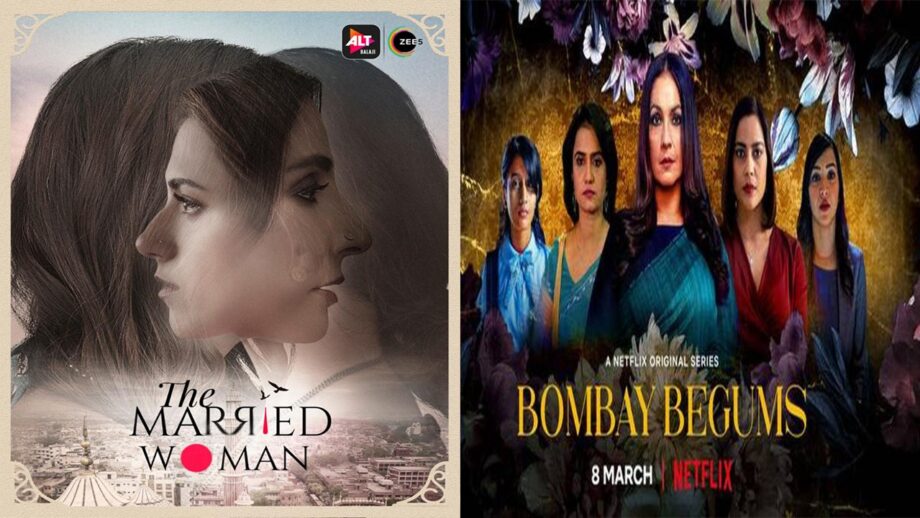There are two big ladies’ specials lined for streaming this Women’s Day. So which one will you watch first, Netflix’s Bombay Begums or Alt Balaji’s The Married Woman?
Though the two share a couple of similarities—there is a lesbian theme running through both and Naseeruddin Shah’s elder son Imaad features in both—the two serial’s are acutely divergent experiences, the one(The Married Woman) a literary adaptation, the other(Bombay Begums) an original screenplay.
What is refreshing is to see these series addressing the hitherto taboo subject of women’s sexuality. In Bombay Begums, a very young girl tells her mother who’s in an extra-marital affair, “It’s okay , whom you want to sleep with is your business.” Another girl in her early 20s from a small town isn’t sure whether she likes boys or girls.So she sleeps with both.
The theme of a lonely housewife finding tenderness and compassion in another woman’s arms is not new to Indian cinema. Shabana Azmi and Nandita Das had played such women in Deepa Mehta’s Fire in 1996. Now it’s Riddhi Dogra and Monica Dogra in The Married Woman.
Has there been a shift in the way society and cinema look at same-sex relationships?
Comments Deepa Mehta, “In some ways I do think we have progressed. But not enough. Homosexuality is still illegal in certain places, like Sri Lanka where mu new film Funny Boy is set. And there are so many who live in fear, just because they are being oppressed on the basis of who they love. With pride celebrations and social organisations, there’s definitely more of a dialogue today than there was years ago. But it’s a long way to go.I loved Call Me By Your Name and Falling. Both very brave and well made. As are films like Moonlight and My Brother Nikhil. The more cinema brings such stories into the spotlight, the greater the dialogue. And that’s what the world needs to bring about change.”
Pooja Bhatt who plays the most important role in Bombay Begums feels, “The very fact that we’re now addressing a woman’s sexual needs and desires without getting uncomfortable shows a shift in what constitutes a taboo subject.”

